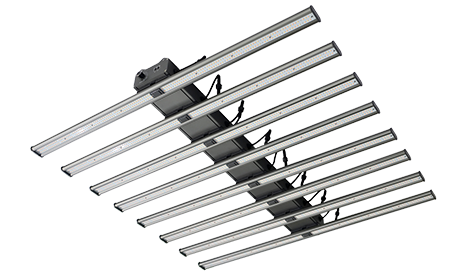수경재배는 토양을 사용하지 않고 식물에 영양분과 물을 수용액으로 공급하는 농업 기술입니다. 수확량 증가, 수자원 보존, 해충 및 질병에 대한 취약성 감소 등의 장점으로 인해 점점 더 주목을 받고 있습니다.
그러나 수경법은 인공 비료 및 영양 용액의 필요성과 같은 몇 가지 과제를 제기하며 유기농법의 원칙과 상충됩니다. 그러므로 수경재배가 지속 가능한 농업 방법인지 여부는 탐구할 가치가 있는 질문입니다.
이 첨단 농업 기술은 까다로운 질문을 제기합니다. 이것이 전통적인 유기농업의 옹호자인가 아니면 집약적 농업을 위한 비밀 무기입니까?
이 글에서는 수경재배, 유기농업, 집약적 농업의 관계를 탐구하여 독자들에게 포괄적인 이해를 제공할 것입니다.
What's the Difference?
수경법: 현대 농업 기술
수경재배는 흙을 사용하지 않는 농업기술이다. 수경재배 시스템에서 식물 뿌리는 영양분이 풍부한 수용액에서 자랍니다. 시스템은 단순할 수도 있고 복잡할 수도 있습니다.
있다 다양한 종류의 수경 시스템DWC 시스템, NFT 시스템, Aeroponics, Drip 시스템, Wick 시스템, 수직 수경법 및 Ebb를 포함합니다. & 흐름 시스템
수경법은 여러 가지 장점을 제공합니다. 수확량을 늘리고 해충과 질병을 줄이며 수자원을 절약할 수 있습니다. 또한 수경법은 도시 환경이나 건조한 지역과 같이 전통적인 농업이 불가능한 곳에서 작물을 재배하는 데 사용할 수 있습니다.
수경재배 및 유기농업
유기농법은 자연 원리를 따르는 농업 시스템으로, 토양 건강과 생물 다양성을 보호하기 위해 천연 비료 사용과 해충 방제 방법을 강조합니다.
수경법은 유기농법과 몇 가지 유사점을 공유합니다. 둘 다 건강하고 무농약 농산물을 생산할 수 있습니다. 수경재배는 또한 수자원 사용을 줄임으로써 유기농업의 목표와 일치합니다.
그러나 수경재배와 유기농법에는 중요한 차이점이 있습니다. 수경재배는 토양을 사용하지 않는데, 이는 토양 건강을 강조하는 유기농법 원칙에 어긋납니다.
수경재배 역시 천연비료를 사용하는 유기농업 원리와 달리 인공비료와 양액을 사용해야 한다.
수경재배 및 집약적 농업
집약적 농업은 높은 수확량을 목표로 하며 종종 화학비료, 살충제, 수자원을 광범위하게 사용하여 환경에 압력을 가합니다.
수경재배는 집약적 농업의 한 형태로 볼 수 있습니다. 수경재배 시스템은 증가하는 수요를 충족시키기 위해 대규모 농업 생산을 가능하게 합니다.
그러나 수경재배는 가정이나 지역사회 농장과 같은 소규모 생산에도 활용될 수 있습니다.
수경법은 유기농업인가 아니면 집약적인 농업인가?
이것은 간단한 대답이 없는 질문입니다. 수경재배의 위치는 특정 구현에 따라 달라집니다.
수경법은 유기 농업 및 집약 농업과 유사점을 공유하는 복잡한 농업 기술입니다. 이는 유기농업의 목표에 맞춰 물 사용량을 줄이면서 건강하고 무농약 농산물을 생산하는 데 사용될 수 있습니다.
그러나 수경재배는 흙을 사용하지 않아 흙의 건강을 중시하는 유기농법에 어긋난다.
댄 베이싱어(Dan Beissinger) 회장 동북유기농업협회 (NOFA) 미국에서는 수경법이 지속 가능한 농업 방법이 될 수 있지만 이는 유기농법의 원칙을 준수하는 경우에만 가능하다고 믿습니다.
그는 수경재배 시스템이 인공 비료와 화학 살충제 대신 천연 비료와 생물학적 해충 방제 방법을 활용할 수 있다고 강조합니다. 그는 또한 수자원을 보존하고 환경을 보호하기 위해 수경 재배 시스템을 설계하는 것이 중요하다고 강조합니다.
Beissinger는 다음과 같이 말합니다. “수경재배는 건강하고 무농약 농산물을 생산하는 지속 가능한 방법이 될 수 있습니다. 그러나 우리는 수경재배 시스템이 유기농법의 원칙에 부합하도록 해야 합니다.”
유기농 순수주의자들은 수경재배가 인공 비료와 영양 용액에 의존하고, 비천연 기술을 도입하고, 토양이 없고, 외부 입력에 의존하기 때문에 유기농업의 영혼이 부족하다고 주장합니다. 그들은 수경법이 토양 건강과 자연 원리에 대한 유기농업의 강조점을 충족시키는 데 부족하다고 믿습니다.
수경재배 혁신가들은 수경재배를 다음과 같이 봅니다. “고급 유기농” 물 사용량을 줄이면서 건강하고 무농약 농산물을 생산할 수 있기 때문입니다. 그들은 수경재배가 가정 농장에서 대규모 상업 운영에 이르기까지 다양한 규모에 적응할 수 있다고 믿습니다.
궁극적으로 수경재배가 관행농법에 속하는지 유기농법에 속하는지는 소비자의 몫입니다. 소비자는 자신의 가치관과 선호도에 따라 수경재배 제품을 선택할 수 있습니다.
당신이 알아야 할 몇 가지 진실
수경재배는 부자연스럽고 전적으로 기술적인 노력이라는 비판에 대해 한 말씀드리고 싶습니다.
유기농이라고 해서 반드시 화학물질이 없다는 뜻은 아닙니다. 누군가의 주장을 들었을 때 “농약 없음,” 그 진술을 소금 한 알로 받아들이는 것이 중요합니다. 실제로 인증된 유기농 식품은 경우에 따라 합성 살충제를 사용할 수도 있습니다.
유기농업은 현대 농업 기술의 특정 측면에서 벗어나는 것을 목표로 합니다. 특히 합성비료의 사용을 제한하고 퇴비와 거름을 선택하려고 합니다.
또한 다음을 사용하는 것을 선호합니다. “자연스러운” 효과가 덜하거나 독성이 더 강하더라도 살충제. 유기농법은 윤작과 같은 기술을 사용하여 토양을 조절하고 유전자 변형 종자의 사용을 피합니다.
일부 유전자 변형 식품은 유기농 식품보다 영양가가 더 높을 수 있습니다.
미국에서는 농무부가 유기농 식품 인증을 감독하는 책임을 맡고 있습니다. 유기농 인증을 받으려면 농부는 다음을 포함한 일련의 규칙을 준수해야 합니다.
- 특정 해충에 대해 승인된 농약이 없는 경우를 제외하고 승인된 농약만 사용하며, 이 경우 합성 농약을 사용할 수 있습니다.
- 거름과 같은 특정 유형의 비료만 사용하십시오.
- 유전자 변형 종자를 사용하지 않습니다.
- 방사선 돌연변이 유발은 사용하지 않지만 화학적 돌연변이 유발은 허용됩니다.
제이스
AUXGROW의 디지털 마케팅 관리자인 Jayes는 수경 재배 시스템에 대한 열정과 LED 재배 조명에 대한 전문 지식을 결합합니다. 실무 경험과 깊은 이해를 바탕으로 Jayes는 지속 가능한 재배의 세계로 여러분을 안내합니다.






